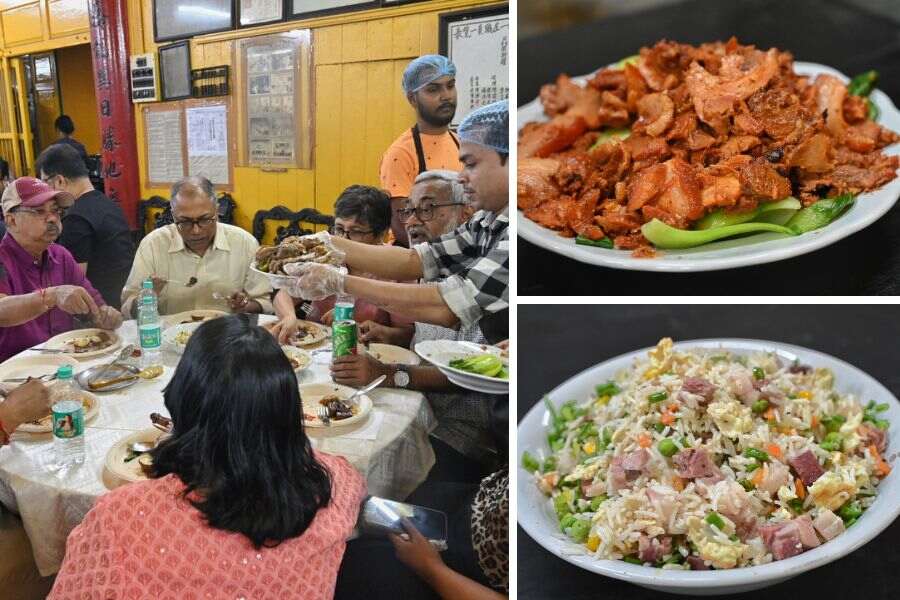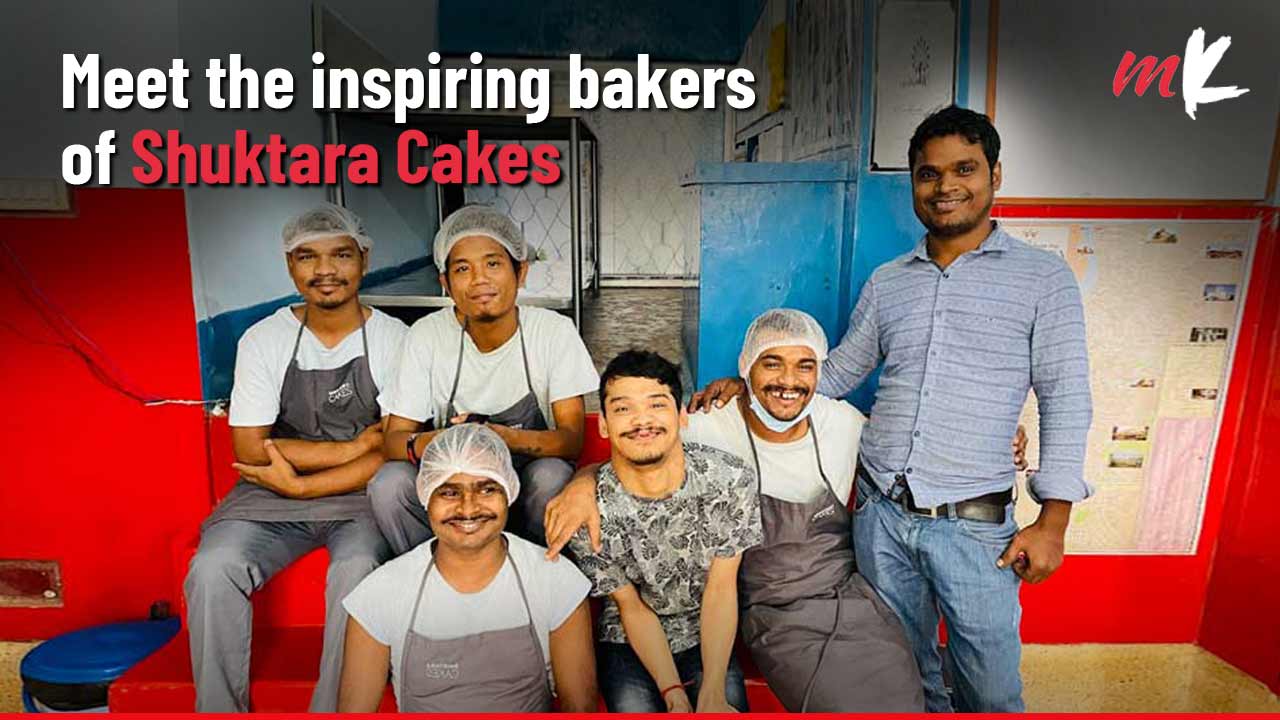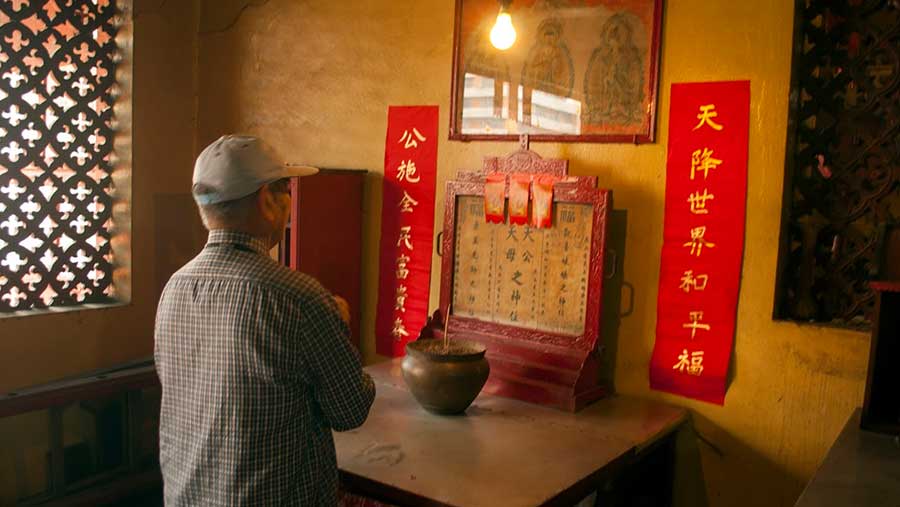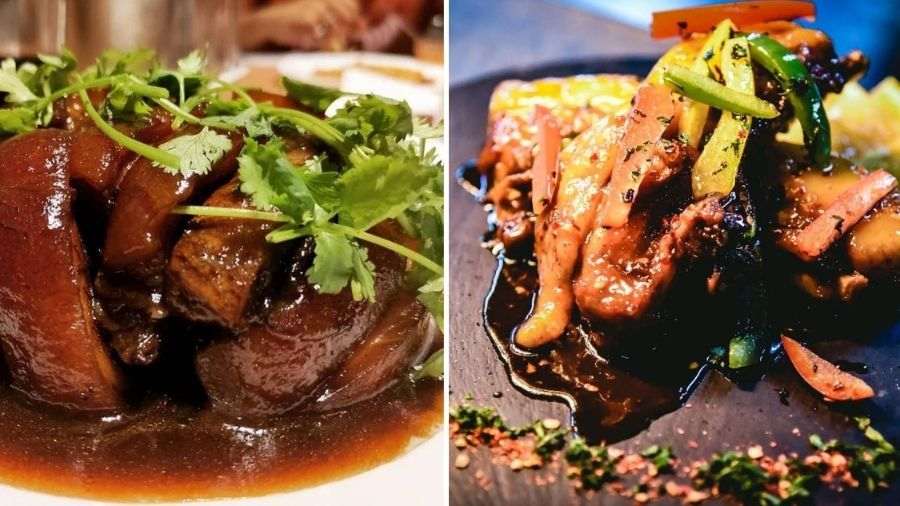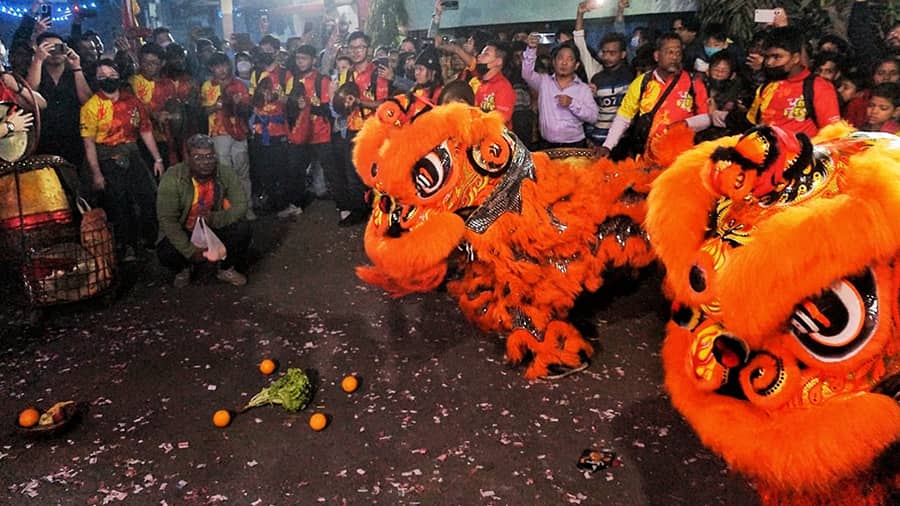An old Chinese church in Kolkata, an Indo-Chinese, pork-heavy menu, and exploring the history of the Chinese community in Kolkata — that’s how The Calcutta Porkaddicts (TCP) celebrated their eighth foundation day on November 24. The group of pork enthusiasts came together for a celebratory lunch in the premises of Sea Ip Church in Tiretta Bazar. In the past eight years, TCP has built a 7,000-strong membership base, and has chapters in Kolkata, Mumbai, Delhi-NCR, Bengaluru and Pune.
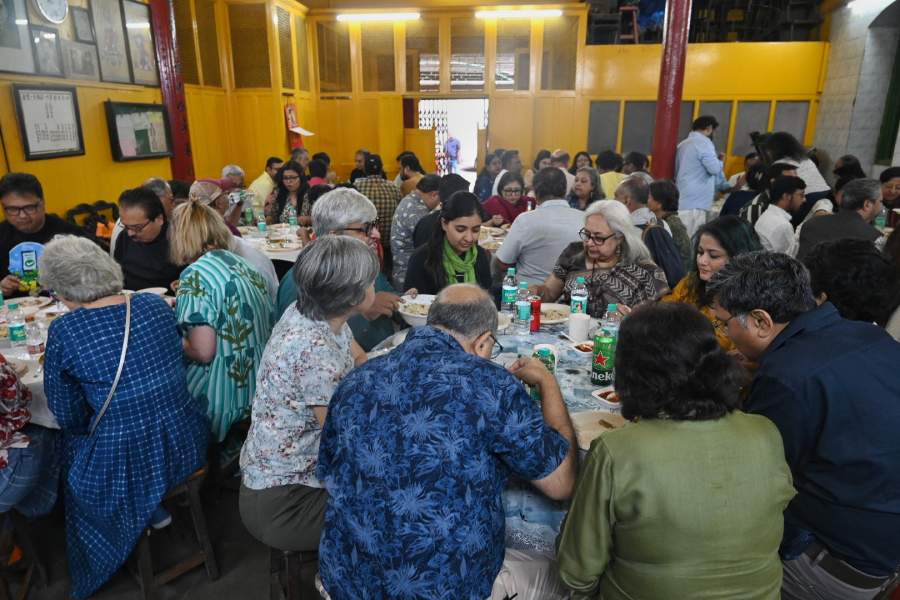
Beginning in Kolkata, TCP has members across Mumbai, Delhi-NCR, Bengaluru and Pune
China-India connection
The celebrations began with a talk on the Chinese community of Kolkata by historian Jayanta Sengupta, curator of the Alipore Museum and former curator of the Victoria Memorial Hall. He began with the migration of the Chinese to India.
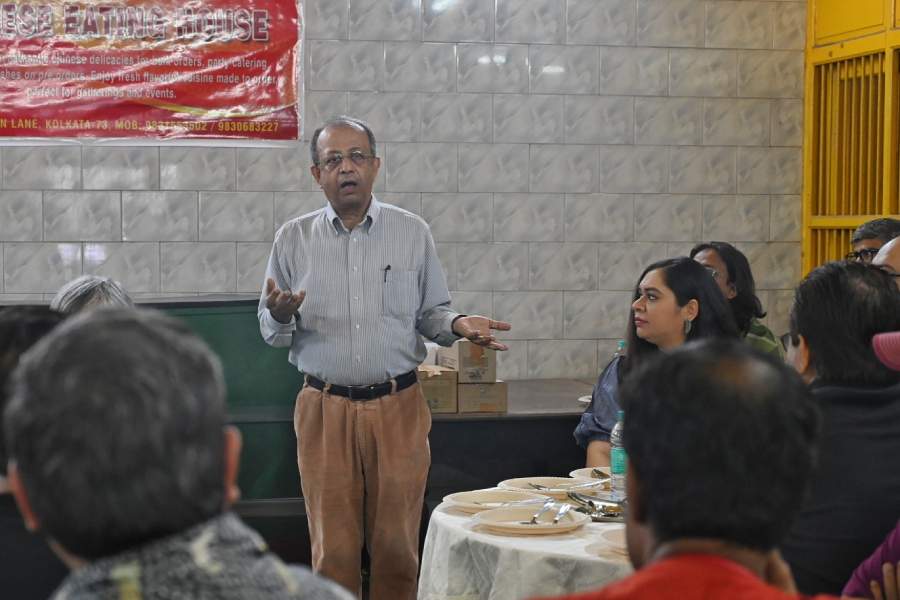
Historian Jayanta Sengupta talks about the history of the Chinese community in Kolkata
“The migration is tied to broader processes like overland travel to Europe, the growth of European imperialism, and political events through the 19th and 20th century that impacted China. It is quite interesting that the history of the British Empire in India is also connected with the China War (Anglo-China War), which was between China and Europe for opium. And the first Chinese communities that came to Kolkata and settled in the old Chinatown, were primarily people from Canton. They were primarily carpenters and were very hard-working.” Sengupta also spoke about the Chinese influence in the city’s culinary landscape and the birth of Indo-Chinese food.
A hearty, porky menu
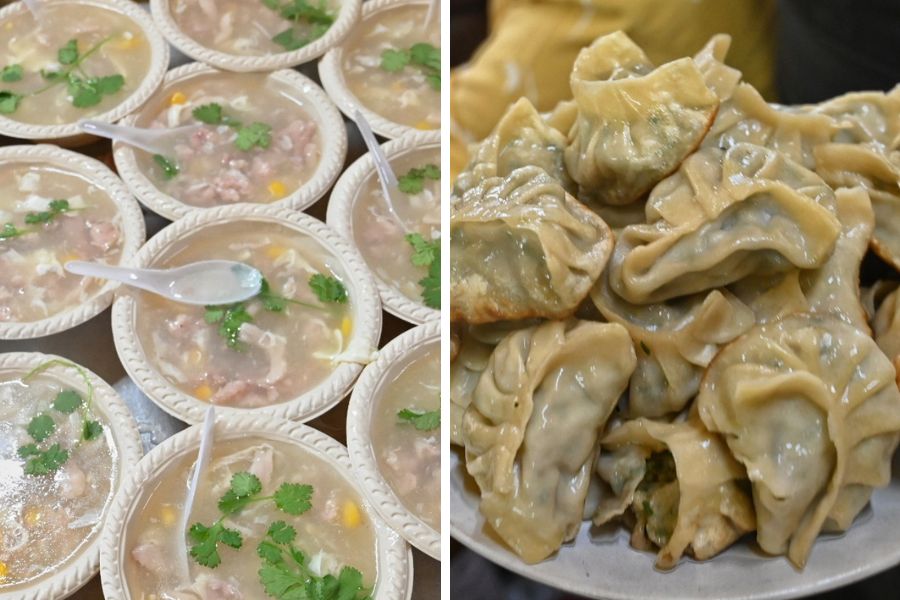
Pork sweet corn soup and chive and pork kothey dumplings
The lunch menu was an elaborate pig-out with Kolkata Chinese dishes catered by DLey, a 75-year-old Chinese eating house in Black Burn Lane. To begin with, a steaming hot pork sweet corn soup was served, followed by juicy chive and pork kothey dumplings.
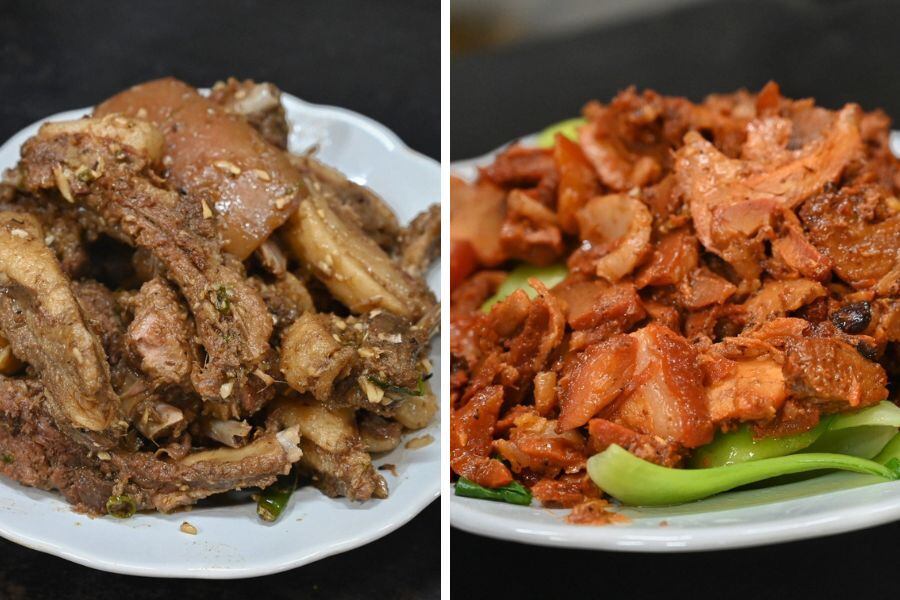
Chilli pork ribs and (right) smoky char siu pork with pak choy
Next, the pork addicts’ menu had meaty fried chilli pork ribs and smoky char siu (Chinese BBQ pork) with pak choy.
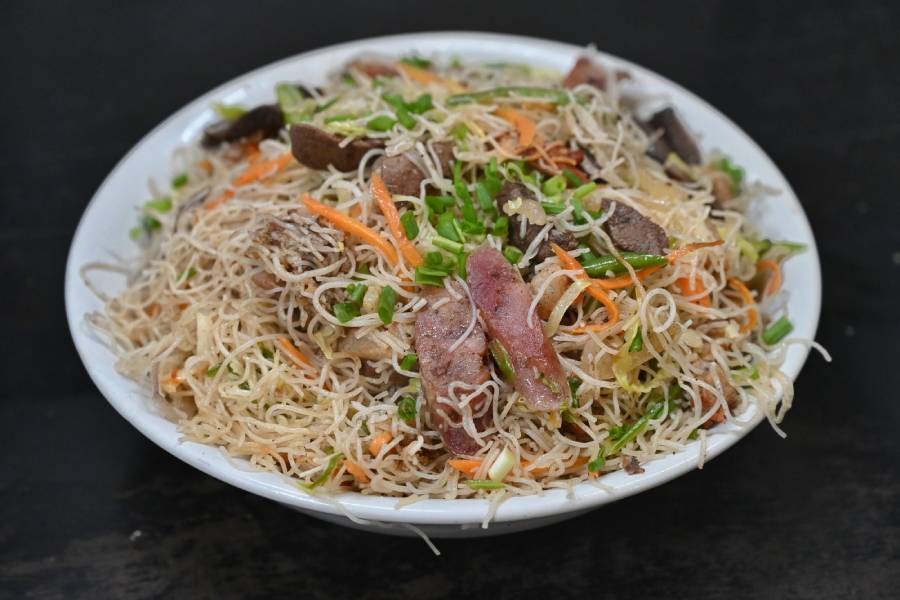
Meifoon with kaptai
For the mains, there was Meifoon with kaptai (pork offals) and lap cheong (Chinese sausage), and ham fried rice paired with wholesome Lu Rou Fan (pork belly and hard-boiled eggs). Each dish was a celebration of Kolkata’s iconic take on Chinese food.
To finish off the meal on a sweet note, there were Madeleines and Financiers from Shuktara Cakes.
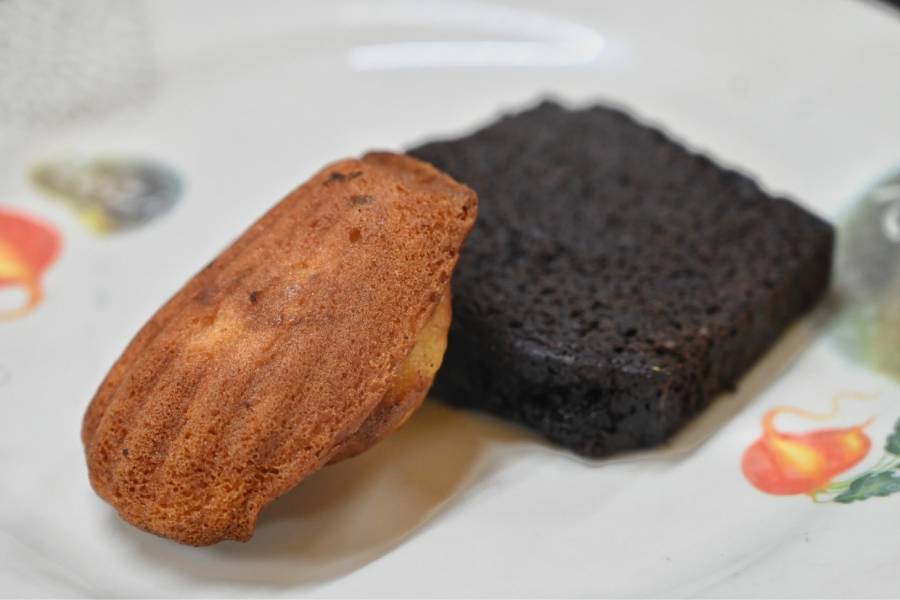
Madeleine and Financier from Shuktara Cakes
The creation of Indo-Chinese food
Explaining the Chinese migration’s culinary influence in Kolkata, Sengupta said, “The Chinese sailors, tea traders, silk merchants, and others settled in the Tiretta Bazar area. For their home-cooked meals, they would make do with whatever spices were available here along with other hyperlocal ingredients, creating a fusion. That’s how Indian and Chinese flavours came together to form Indo-Chinese. Much later, the food was enjoyed by others. Gradually, stalls were set up and then restaurants, where other communities relished the Indianised Chinese food.” The historian also pointed out that the authentic Chinese food in China is low on spices which is often too ‘bland’ for Indian taste buds.
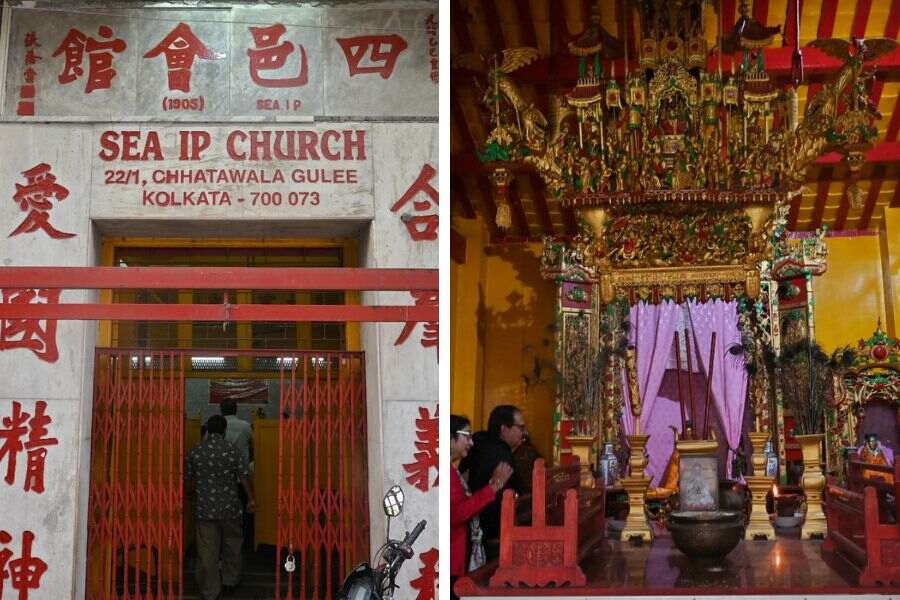
Sea Ip Church is one of the many Chinese temples in Tiretta Bazar
As the community grew, they built places of worship in the area. One such temple is the Sea Ip Church, built in 1905 and dedicated to the Goddess of Mercy Guanyin. The sanctum sanctorum is on the first floor, while the space on the ground floor is a community centre, which is where the TCP event was held.
Celebrating the spirit of Kolkata
The members of TCP were joined by representatives from the Italian and German consulates in Kolkata. Speaking to My Kolkata about his experience for the afternoon, Riccardo Dalla Costa, consul general of the Italian Consulate in Kolkata said, “It was great food and company. The hospitality was even better. Kolkata is known for adopting different traditions as its own. So it was great being here with The Calcutta Porkaddicts listening to so much history.”

Riccardo Dalla Costa, consul general of the Italian Consulate in Kolkata, and (right) Ayan Ghosh, founder-president of TCP
Summing up, Ayan Ghosh, founder-president of TCP said, “For generations, Kolkata has welcomed different communities, embraced them and made them our own. Like the Chinese community whose remnants we see here (at Tiretta Bazar). We are very fortunate to have been able to have this event in a space like the Sea Ip Church.”
